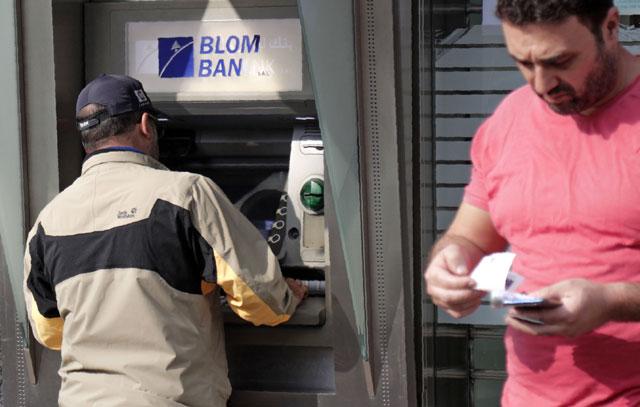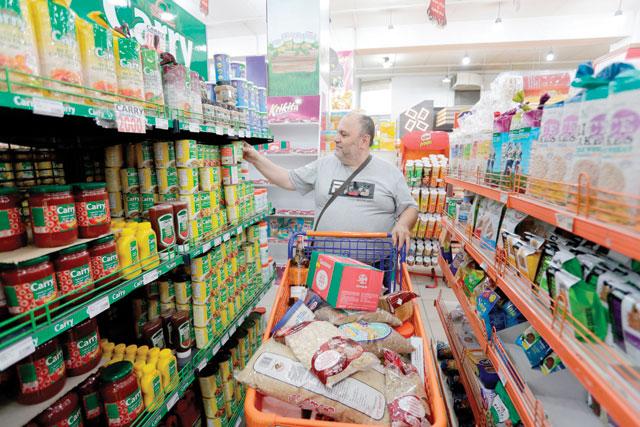You are here
Petrol pumps shut down in protest-hit Lebanon
By AFP - Nov 09,2019 - Last updated at Nov 09,2019

A man withdraws cqsh from an ATM machine in the Lebanese capital Beirut on Saturday (AFP photo)
BEIRUT — Several petrol stations in protest-hit Lebanon stopped services on Saturday, as reserves ran dry due to a shortage of US dollars to pay suppliers, a syndicate head said.
The shuttering of petrol stations came as demonstrators again took to the street across the country, keeping up their three-week-long movement against a political class regarded as inefficient and corrupt.
“The petrol stations that opened today are the ones that still have reserves. They will close down as soon as supply runs out,” said Sami Brax, the head of the Syndicate of Gas Station Owners.
He said if officials do not facilitate access to dollars by Tuesday, “we will be forced to stop imports and close down all petrol stations.”
Petrol stations receive payment from customers in Lebanese pounds but have to pay importers and suppliers in dollars.
For two decades, the Lebanese pound has been pegged to the US dollar, with both currencies used interchangeably in daily life.
But banks have been reducing access to dollars since the end of the summer, following fears of a shortage in central bank dollar reserves.
In recent days, banks halted all ATM withdrawals in dollars and severely restricted conversions from Lebanese pounds.
Many Lebanese have had to instead buy dollars from money changers at a higher exchange rate, in what amounts to a de-facto devaluation of the local currency that has sparked price hikes.
The official exchange rate has remained fixed at 1,507 Lebanese pounds to the dollar, but the rate in the parallel market has surpassed 1,800.
“The banks are under pressure from people, both inside Lebanon and abroad,” said economist Naseeb Ghabreel, after many rushed to withdraw their dollar savings or convert Lebanese pound accounts.
Since September, petrol station owners have accused banks of failing to provide them with the dollars they need and threatened strikes.
In response, the central bank last month pledged to facilitate access to the greenback for importers of petroleum products, wheat and medicine.
But the measure has not yet gone into effect.
Lebanon has since October 17 witnessed an unprecedented popular uprising against everything from power cuts and poor social security to alleged state corruption.
The government yielded to popular pressure and stepped down last month, with the World Bank urging for the quick formation of a new Cabinet to prevent the economy from further deteriorating.
Related Articles
BEIRUT — Petrol station owners in Lebanon on Friday suspended a strike and said they reached a deal with the government allowing them to pay
BEIRUT — Fearing food shortages in protest-hit Lebanon, Sanaa crammed bags of fava beans into a packed trolley, one of dozens of shoppers wh
BEIRUT — Lebanon hiked fuel prices by more than 30 per cent Tuesday as it reduced subsidies that have eaten away at the central bank's forei

















